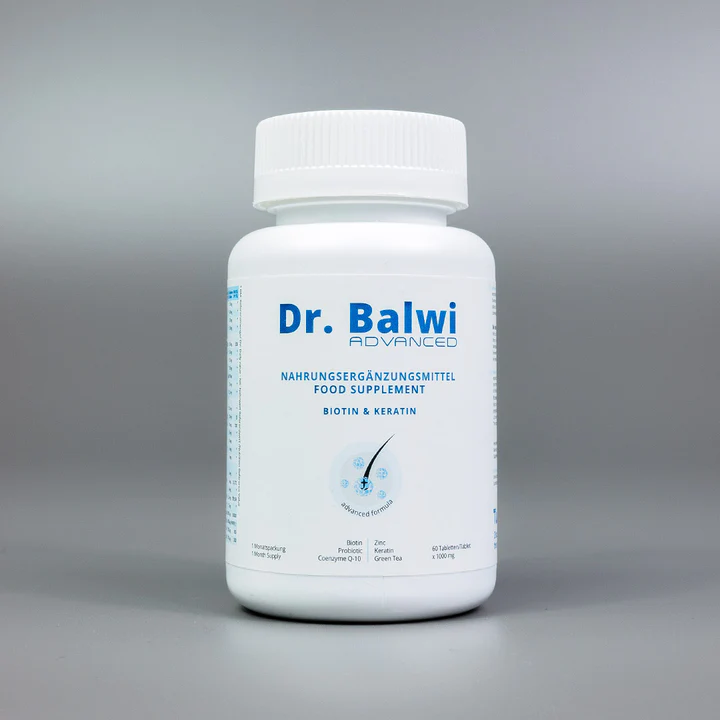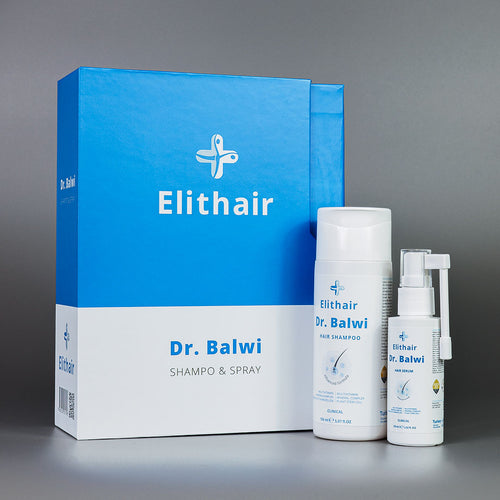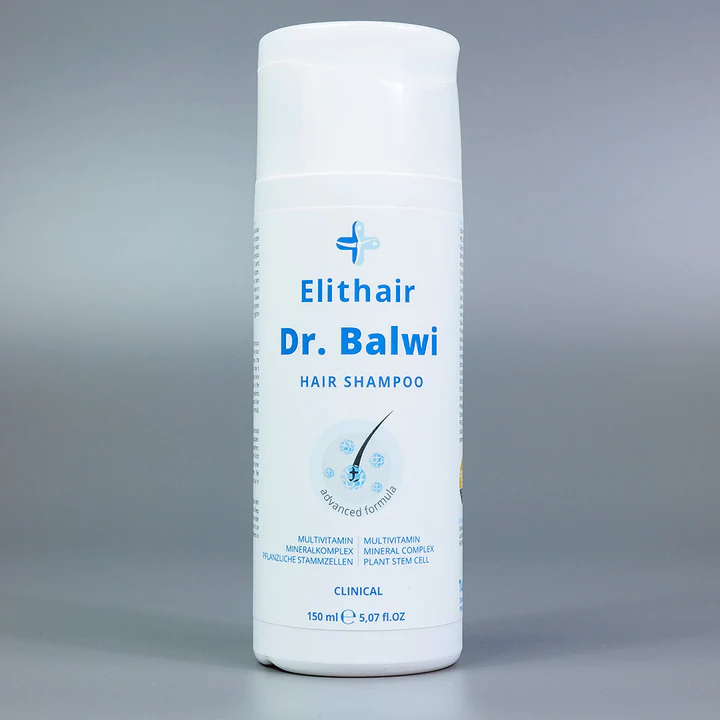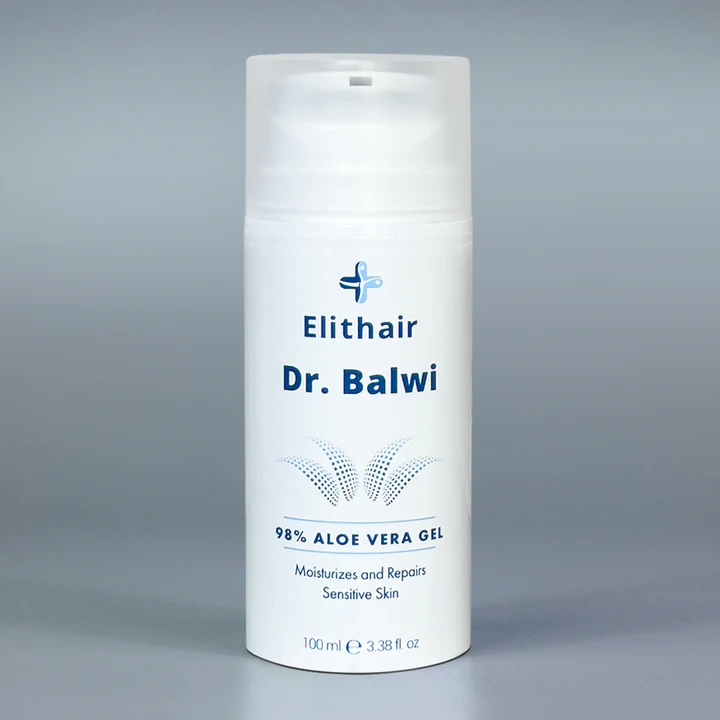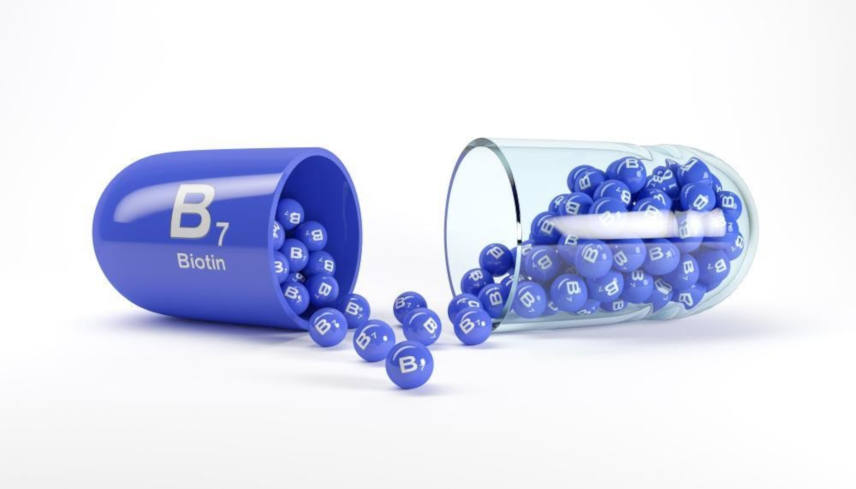
Does A Biotin Deficiency Cause Hair Loss?
Hair thinning, hair loss and pattern balding are primarily a male issue, but it is becoming more prevalent among older women. It is natural for you to fall into panic when you discover hundreds of loose hair strands in the shower. And the more you stress because of hair loss, the more likely it is that cortisol increase will make your hair shed even more.
If you browse the Internet or consult a specialist for an effective way to reverse the problem, the general advice you will get is – even from a doctor – “just take a biotin supplement”. We’ll look at the benefits of biotin and who can be susceptible to biotin deficiency.
Summary
- What Is Biotin?
- What Are The Symptoms of Biotin Deficiency?
- What Are The Causes of Biotin Deficiency?
- Is a Biotin Deficiency Hereditary?
- What Foods Are High In Biotin?
- Conclusion
What Is Biotin?
For years, dermatologists and other healthcare professionals have been prescribing vitamin B7 for male or female pattern baldness issues, unfortunately studies haven’t yet been able to fully assess its benefits. The production of keratin which biotin is necessary for promotes strong hair and nails.
Biotin is a coenzyme for a group of carboxylase enzymes that help various metabolic reactions, including gluconeogenesis, fatty acid synthesis, and catabolism of branched-chain amino acids – that are essential for healthy skin and hair. Because of its wide availability and affordability, biotin has become a popular hair loss nutritional supplement. Biotin is also water-soluble meaning that it cannot be stored by the body so maintaining a high level can be difficult if you’re not eating the right foods.
What Are The Symptoms of Biotin Deficiency ?
A biotin deficiency is not as usual as other vitamin deficiencies. Few people will struggle to get enough biotin from a healthy, well-balanced diet. That’s because many foods naturally produce large amounts of the vitamin. Additionally bacteria in your gut is able to produce biotin, known as intestinal flora, as well which can have a healthy effect on your health.
Nevertheless, you can still develop a biotin deficiency. If you do, you may experience the following signs and symptoms
- Dry or scaly skin
- Red rashes on the face
- Brittle hair
- Hair loss
- Dry eyes
- Fatigue
- Loss of appetite
- Nausea
- Depression
- Muscle pain
- Seizures
- Difficulty walking
- Insomnia or difficulty sleeping
- Frequent upset stomach
- Burning or prickling sensation all over the body, and especially in the hands and feet
If you suspect you do not have enough B7 its important to get medical advice about your biotin levels with a blood test. This is the easiest way to confirm or rule out a deficiency as the symptoms can be confused with a variety of other disorders. Additionally low levels of vitamin B7 can be the result of another illness, your doctor can confirm this with other tests to find out why you have a biotin deficiency.
What Are The Causes of Biotin Deficiency?
Although deficiency of biotin is quite rare, doctors typically look at the following possible causes to understand your biotin status and why your levels might be so low. 5 reasons include:
1. Medications
Some medicines may prevent your body from adequately absorbing vitamins. These include antibiotics and anti-seizure drugs – in high doses. In fact, antibiotics kill the good bacteria that can naturally produce biotin in your intestines.
2. Intravenous (IV) feeding
You may develop a B-7 deficiency if you are obtaining your nutrition from an IV line or tube. Biotin supplementation may be needed until you can eat solid food again.
3. Intestinal problems
Some chronic bowel conditions may prevent the absorption of nutrients by your body. These conditions include Colitis and Crohn’s disease.
4. Long-term dieting
Strict dieting may prevent you from getting the required nutrients from the food you eat. Eating a healthy and well-balanced diet is essential to your hair and skin health.
5. Certain genetic factors
Some genetic disorders, including phenylketonuria, holocarboxylase synthetase deficiency, and biotin transport deficiency may result in a biotin deficiency. A deficiency in biotin transport and holocarboxylase synthetase are both extremely rare – while phenylketonuria is more common.
Is a Biotin Deficiency Hereditary?
Yes, it could be. Biotinidase deficiency is a highly treatable hereditary disease in which the body is unable to absorb biotin due to an enzyme deficiency called “biotinidase”. BTD gene mutations cause a deficiency of biotinidase. This disorder is further divided into partial and complete deficiency.
Frequency of deficiency
The incidence of these hereditary conditions is about 1 in 137,000 births worldwide. The prevalence of partial deficiency of biotinidase activity is around 1 in 110,000 persons. At birth infants will be screened for this since it can lead to neurologic issues if its not flagged and treated early.
Other hereditary disorders, as discussed above, that may cause various levels of biotin deficiency include holocarboxylase synthetase deficiency, multiple carboxylase deficiency and biotin transport deficiency.
What Happens When You Don’t Get Enough Biotin?
Symptoms of biotin deficiency tend to be significant if no treatment follows. Individuals with biotinidase deficiency may experience poor muscle tone, movement and balance difficulties, seizures, loss of vision, loss of hearing, skin rashes, breathing problems, fungal infections, alopecia, baldness, male or female pattern baldness issues.
These symptoms often start after the first few weeks or months, and if untreated, can be life-threatening.
Have you tried Dr. Balwi’s food supplements?
Thanks to a unique combination of ingredients your hair receives the essential nutrients that nourish the roots and hair, and prevent their loss. This is because our biotin rich food supplements contains all the essential nutrients for your hair. Therefore unlike ordinary hair care products, ours tackle the problem at the root!
What Foods Are High In Biotin?
Daily biotin requirements are not hard to reach. A child should get 5 micrograms (mcg) a day, an adult should aim at eating 30 micrograms a day, and pregnant women should target 35 mcg a day.
It is quite easy to get this vitamin from common foods. Many foods high in biotin content include:
- Green peas, lentils, and legumes
- Sunflower butter and sunflower seeds
- Carrots, mushrooms, and cauliflower
- Organ meats, including kidney and liver
- Seafood
- Cooked eggs, and raw egg whites
- Dairy products, including milk, yoghurt, and cheese
- Whole grains, including corn and barley
Processing foodstuffs destroys biotin. To get the highest possible amount of vitamin B-7, eat as many of these foods as possible in their whole, unprocessed forms.
Conclusion
While it is not common to have a severe biotin deficiency, a marginal biotin deficiency of B7 vitamins can lead to hair loss and decreased health for your skin and nails. If you find you are lacking in biotin or are experiencing hair loss why not try our Biotin & Keratin Supplements. The combination of vitamins and minerals provides healthy hair growth and preserves your follicles.
Do you have more questions about hair loss? Then don’t hesitate to contact our friendly team that will answer all your queries. Furthermore they can also propose a free and non binding hair analysis.
